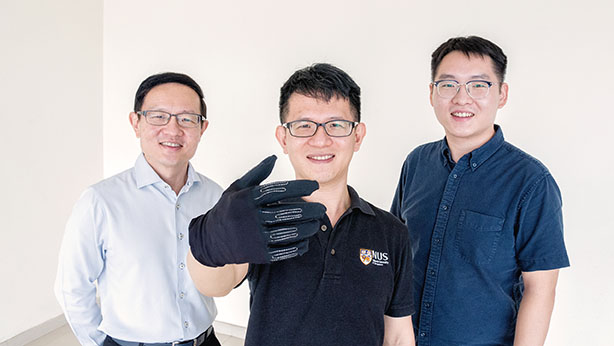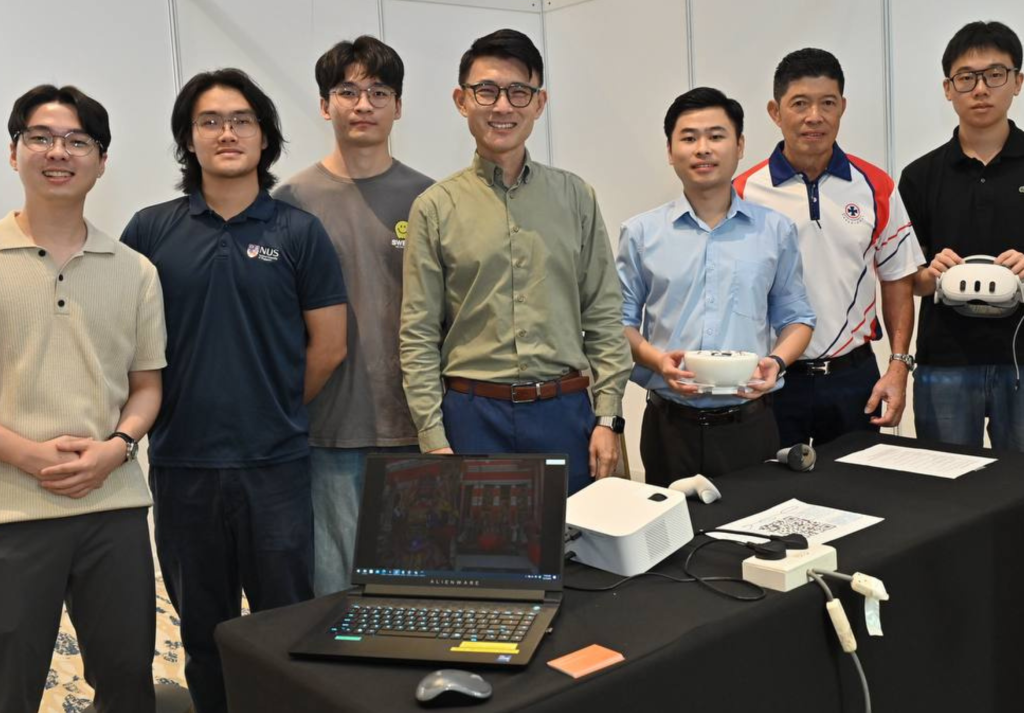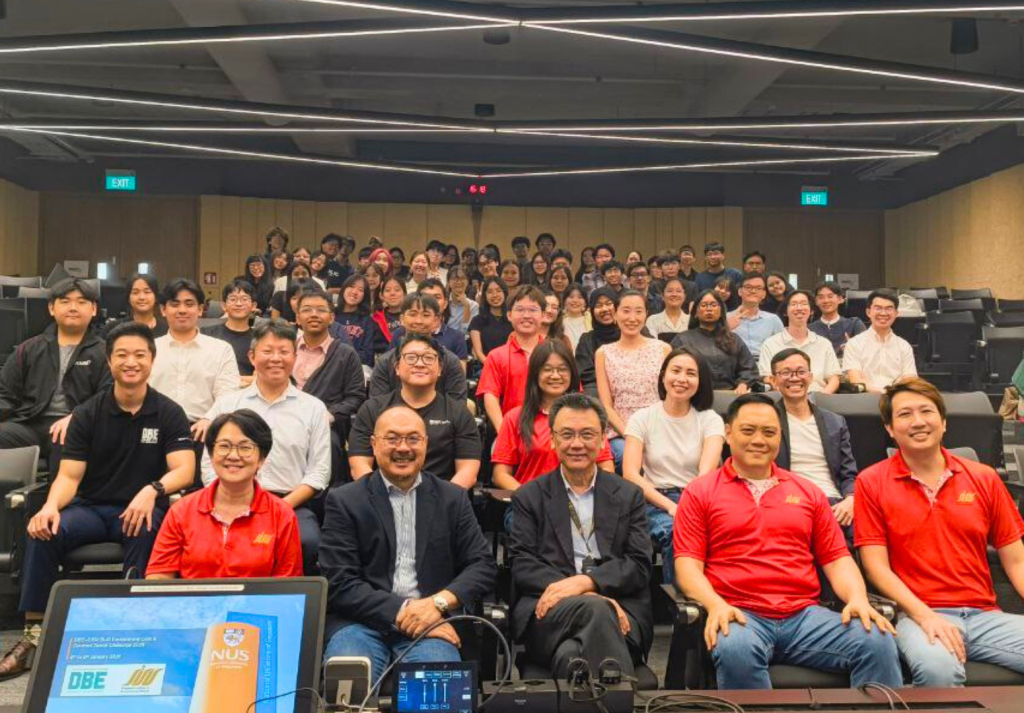
Inspired by science fiction, a new smart glove promises to bring a more immersive experience to the world of gaming, as well as opening up possible applications in healthcare, robotics and contactless control systems.
Developed by NUS Engineering researchers, the InfinityGlove™ makes use of breakthrough motion sensor technology, incorporating ultrathin, highly sensitive microfibre sensors that are woven into the fabric of a lightweight glove.
Part of the inspiration for the glove, the researchers say, came from watching the film Minority Report, a futuristic crime drama in which Tom Cruise controls and retrieves information on virtual computer screens using hand gestures. The glove's name also gives a nod to Thanos's world-ending weapon in The Avengers movie series.
"We were very much inspired by the need to remotely control tasks with just hand gestures," said NUS Engineering's Professor Lim Chwee Teck, and Director of the NUS Institute for Health Innovation & Technology (iHealthTech).
"For gamers, the glove allows game play to move away from traditional controllers, putting control truly in your hands."
See the InfinityGlove in action below:
Liquid metal
The glove's responsiveness and light weight comes from a patented liquid metal-filled microfibre about the thickness of a human hair. The fibre changes in electrical conductivity when bent, with sensors translating the changes to interpret different hand gestures and connecting wirelessly to the game console.
As well as being bendable in all directions, the fibre is also very stretchy opening up an almost infinite range of user inputs, all of which are easily customisable.
The glove is already compatible with the popular Unity game engine and has been tested with first person shooter games such as Battlefield V. The developers say compatibility with other game software will be added as the glove moves to mass production, planned in the next 12 months.
Whilst gaming gloves themselves are not new, devices on the market are usually bulky and made of hard, heavy materials with limited flexibility and comfort for the user.
In contrast, the InfinityGlove™, weighs only 40 grams, is extremely flexible, and is comfortable enough to be worn for extended periods without causing fatigue for the wearer. Even if it does get a bit sweaty after an intense gaming session, it can simply be thrown into the washing machine on a normal cycle.
"Our sensor technology and high user comfort is what really differentiates the glove from other controllers, taking gamers into the next generation of immersive play," said Dr Yeo Joo Chuan, a member of the research team and co-founder of Microtube Technologies, an NUS spin off company.
Gesture control
Aside from tapping into a huge potential market of 2.2 billion gamers worldwide, the researchers say the gloves and sensors have potential application in a range of other areas such as robotics, smart textiles, virtual reality and healthcare. Indeed the sensors were originally developed with biomedical uses such as hand rehabilitation in mind, before the much larger commercial application in gaming became apparent.
In the current COVID-19 pandemic situation, with people encouraged to minimise direct contact with touchpoints, they also see a growing potential market for gesture-based control systems. For example, in situations where multiple workers operate the same machinery.
"We envision that gesture-based control using our smart gloves can bring us one step closer to a truly immersive interface between humans and machines," said Professor Lim.
Video credit: NUS News





